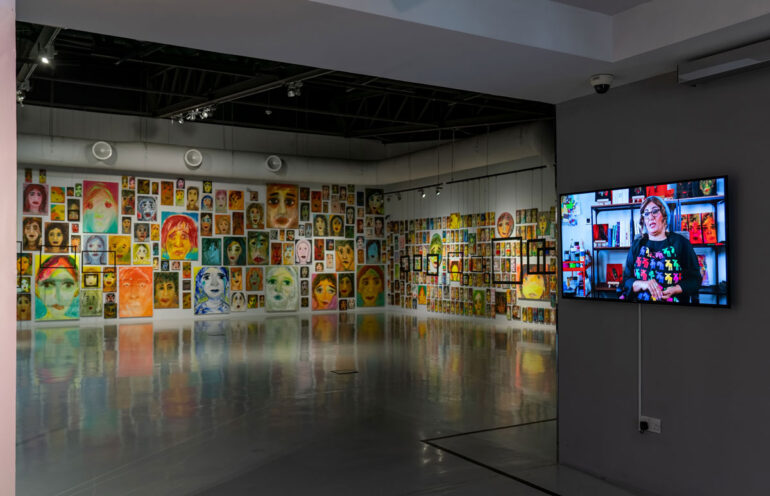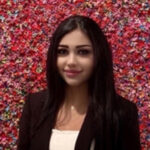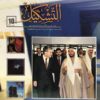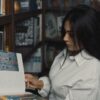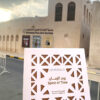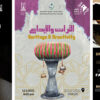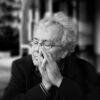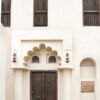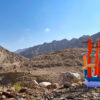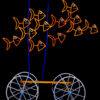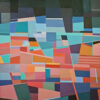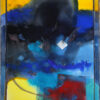Poetry is a chant, and chanting is a sentimental act, which started as a melody in the wildest of fields to drive camels with tunes, and the camels obeyed. This sentimental impulsion steers us towards another world, where we can experience the amazement of pure existence, where one pursues his self, and dives within the self, hence performing miracles that could fill our lives and history. As a nation, we’ve been absorbing our poetic sentiments all throughout our history, and poetry was the source in which Arabs’ records were reserved, and every detail of their lives was kept. Any sentimental writing is considered poetry, that’s why we are not to judge the frame in which it arrives to us as long as our focus is on the sentiment itself, was it metrical verse, free verse, or prose. Instances of key figures in our record of sentimental poetry would be Badr Shakir al-Sayyab and Muhammad al-Maghut, who proved themselves to be pioneers of prose poetry and free verse, but not to forget our poetic history woven by the Pre-Islamic Jahili poets and the great poets of Abbasid Caliphate such as Ḥabīb ibn Aws al-Ṭā’ī ‘Abu Tammam’, Buhturi, and Al-Mutanabbi.

With Nujoom Al-Ghanem, we embark upon a sentimental journey, which nudges the reader or the listener to depths. This sentiment is not linked to a form, to time, or to the speaker; about that, Nujoom Al-Ghanem says:
The water of the river poured down our wounded steps Though it never intended, they hurt Even hurting us more For the river never cared That they were our only way Back home
This poetic text takes us to places deep within our inner selves where it extends to cover feelings of pain and search for a notion of existence lost deep within us. For that, renewal in art consequently means renewal in perception, and in poetic objectives. Be it any form of text, what matters is where it arrives at. Poetry relates to both the poet and to the receiver at once, for if it never poked the receiver’s sentiment, poetry loses its function.
Poetry glides like a stream with our poet, without pretense. Her tongue utters the poems that are trembling within her so that they come up clear and honest. For that, Nujoom Al-Ghanem is considered a pioneer of prose poetry in the Arab world.
When speaking of the artworks of Nujoom Al-Ghanem, we stand in front of the painting, trying to absorb its details, because a painting, just like a poem, has its own language. The painting documents a fleeting moment of the artist’s life. As the artist glimpses it, to later introduce it for everyone to see. With time passing, this painting becomes the collective memory of society, and since a poet scrutinizes time, and foresees the future, they so often create a prophecy at his time. Nujoom Al-Ghanem has painted her life and her reality, in art as much as in poetry, thus requiring us to read through her in order for us to apprehend her thoughts and mission.
A journey in Art and Thought
When contemplating Nujoom Al-Ghanem’s journey, you pause at the scene of a valuable treasure, so you stand in astonishment, trying to grasp every detail. This treasure encompasses varying gradients from poetry to art. You might see direction and montage in a language closer to the zenith, and the dream of this time is slowly heading towards modernity and post-modernity. Nujoom Al-Ghanem has abridged the distances, so she can feature the language of this era in her path.
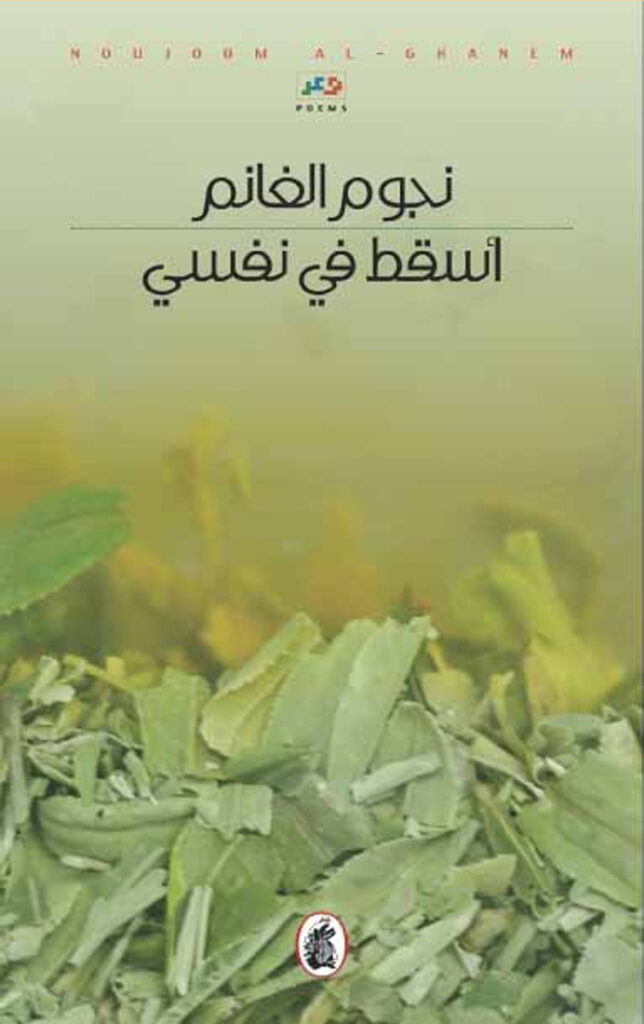
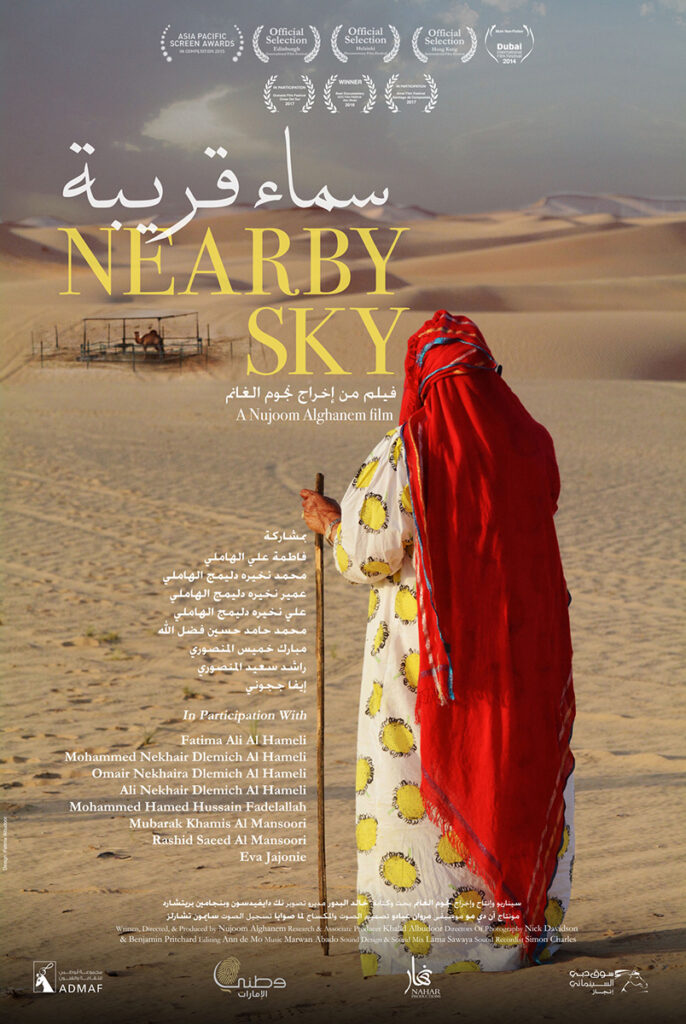
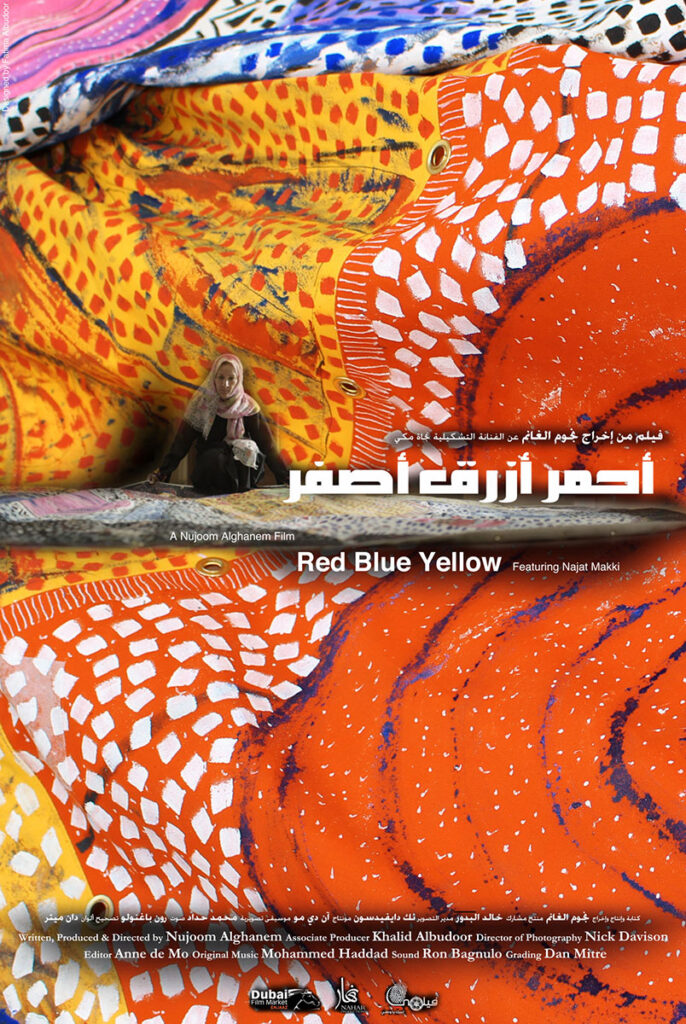

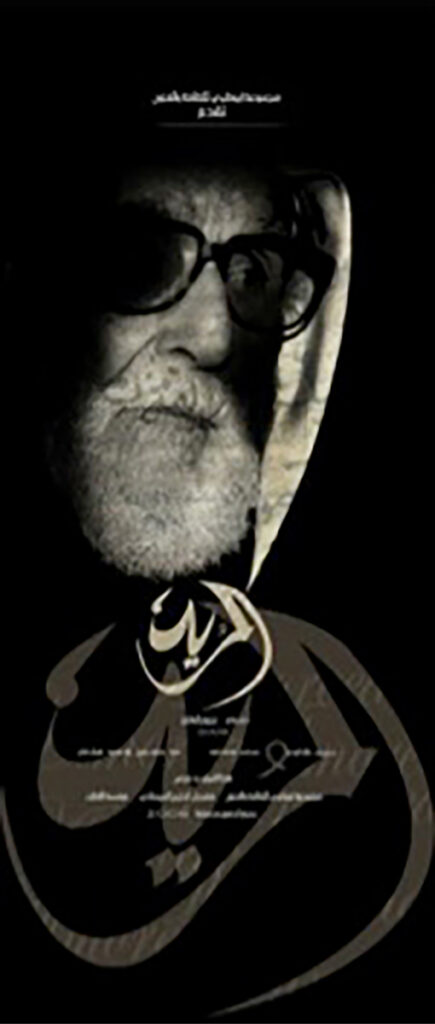
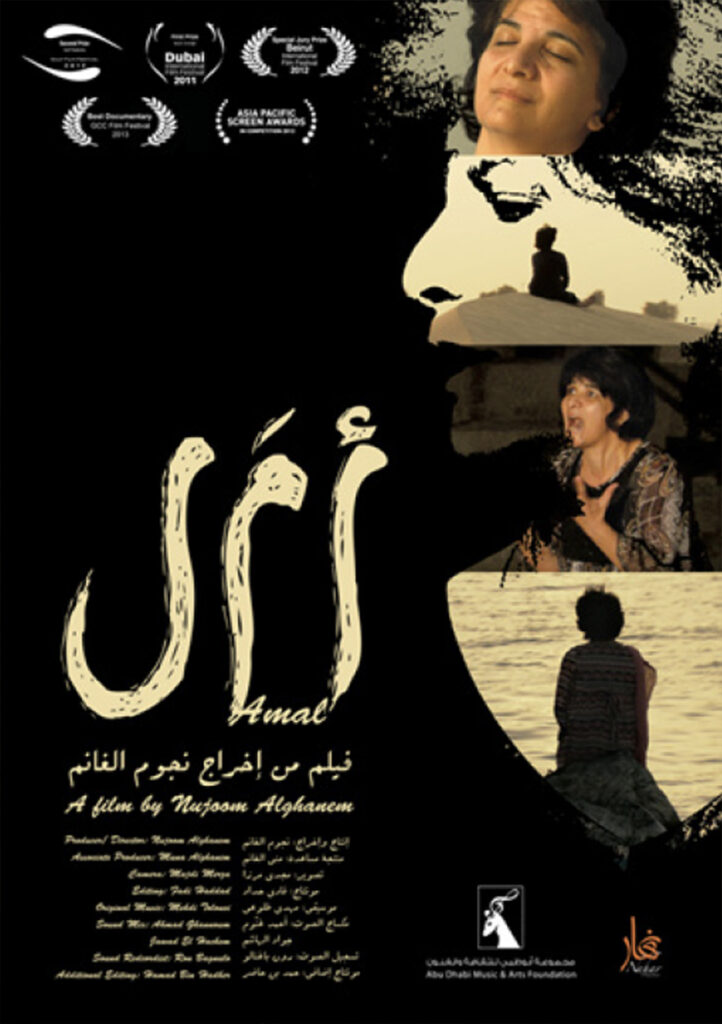
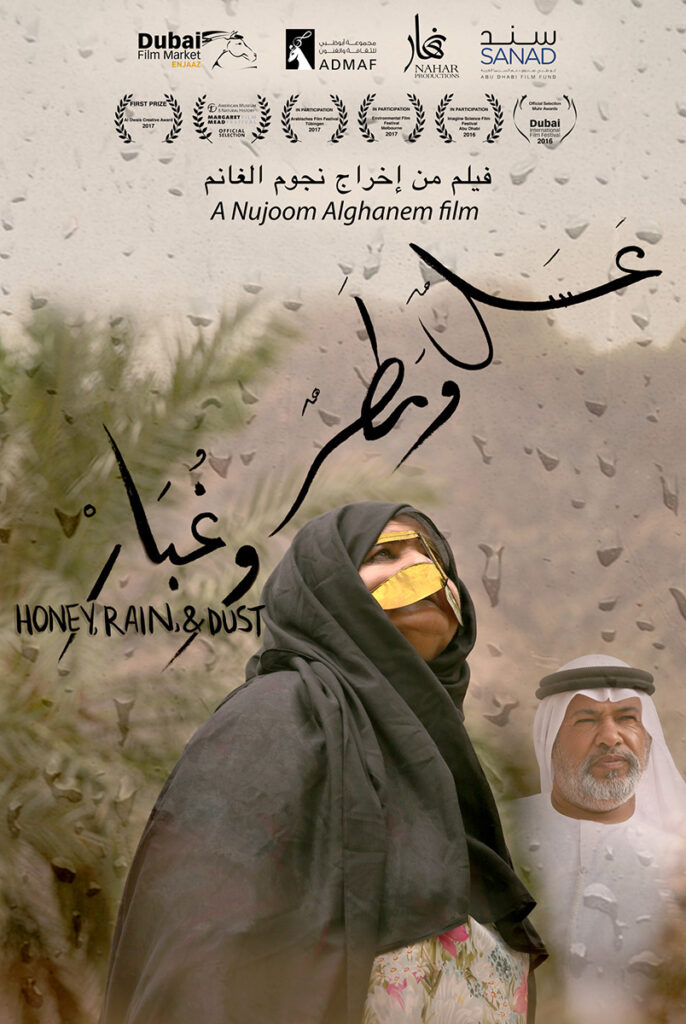
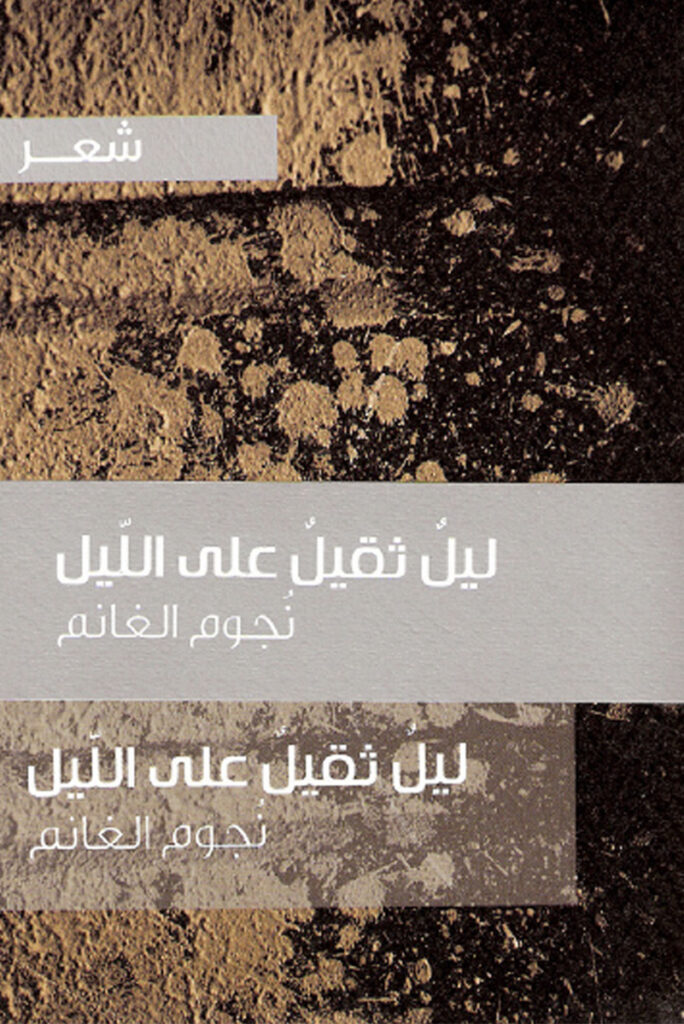
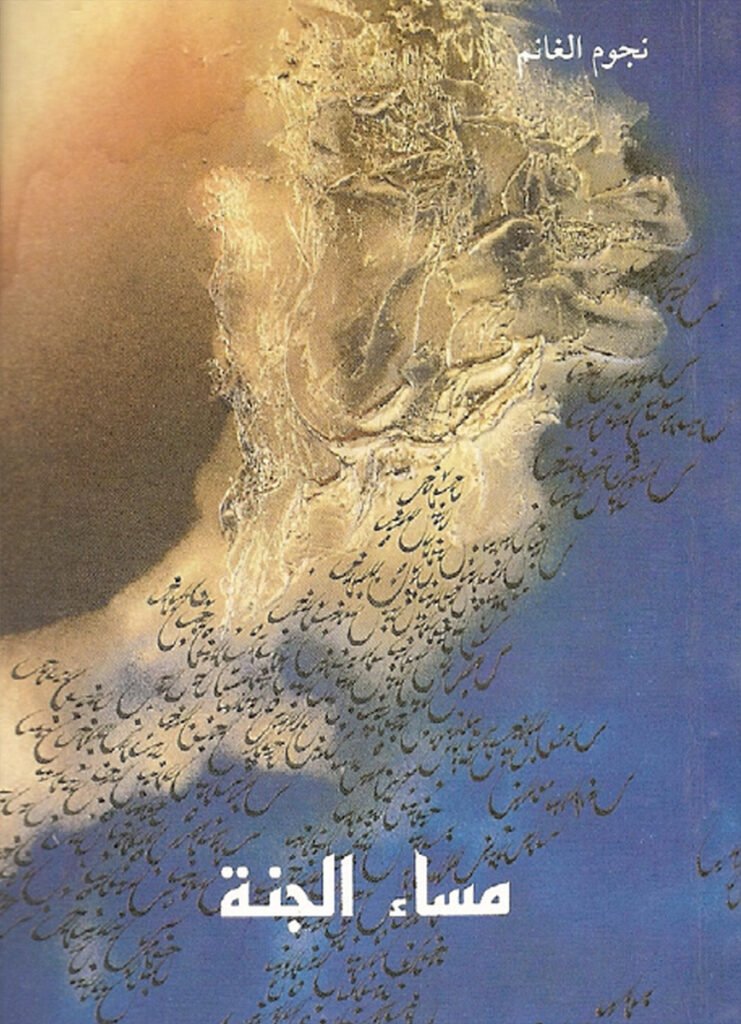
Her journey started with the signs of searching for the path, to finally find it in the faces that are screaming in the face of time, those faces that speak of hidden life in their features. This vision of Nujoom Al-Ghanem has made her a researcher, trying to find the answers to all of life’s questions. Although she tried with her poetry to address the mother, with her tears and her features, and for her, those meant belonging, not to a homeland only, but to all of life’s meanings. In her exhibition, held at Maraya Art Centre under the name “Faces, Phantoms, and Expressions”, where you have to gather your whole humane presence in order to recognize the quiddity of the artwork. The way I see it, Nujoom Al-Ghanem wanted to philosophize life through the language of art, without answering the words of the viewer’s question. Nujoom Al-Ghanem is a multi-talent artist, writer, poet, and director, from the generation of pioneers who paved the way for the coming generations, and she’s one to use colors to draw the philosophy of the coming era.
Nujoom Al-Ghanem started her career back in the middle of the 80s, after she met the late artist Hassan Sharif. She produced some paintings and sculptures at Al Mureijah Art Atelier in Sharjah, where she was introduced to the audience for the first time. In January 1985, she co-founded “Aqwas collective” along with Hassan Sharif, Youssef Khalil, Sudanese story writer, and Khalid Albudoor, artist, researcher, and translator. With “Aqwas collective”, she issued “Ashes Series”, which was a poetic, artistic, story publication. On March 28, 1985, she participated, with Emirates Fine Arts Society, in the 4th annual exhibition at Expo Centre Sharjah. Also, on April 19, 1985, within the activities of “Aqwas collective”, she participated in a one-day collective exhibition with each of late artist Hassan Sharif and Poet Khalid Albudoor.
Nujoom Al-Ghanem has contributed to several creative and intellectual fields in UAE. As she published eight poetry collections, and directed around 20 films including seven long documentaries, in addition to some short documentaries, novel films, and artistic films. Most of which were awarded regional and international awards. She also contributed to founding Nahar Productions, a company for Art Production headquartered in Dubai. She is also a professional trainer in the field of filmmaking and creative writing, in addition to her active participation in the cinematic, artistic, and poetic scenes. Nujoom Al-Ghanem had multiple talents, encompassing literature, poetry, direction, and many others, hence becoming a comprehensive artist. “Being named a comprehensive artist actually is a source of concern, for it holds
A verse of “Mazes” poem, from “The Night of Heaven” poetry collection (1989)
It’s I who instructed you to mysteries world My poems were yours, it is I who lent you my sword When I ask you to shatter the day, break the cycle It is for falling all over seems tempting It is for I, done with fighting It is I I, Urwa ibn al-Ward What is it, that went wrong?
such big responsibility, a responsibility I feared all along my experimentation journey. This applies to everything I have ever done. It is the beauty of art, that it is extending, that it allows identification of forms, especially with conceptual arts, in which the principle of open borders is actually applicable.”
The Angels – from “Angels of Distant Longing” poetry collection – 2008
The angels who suddenly vanished Are hiding nearby Over the city verge Hearing our hearts sigh But not willing to approach Bowing their heads Over our roofs Watching us praying in our beds Neglecting our wounds Bleeding in the night They’re departing now For our blood might Stain their robes
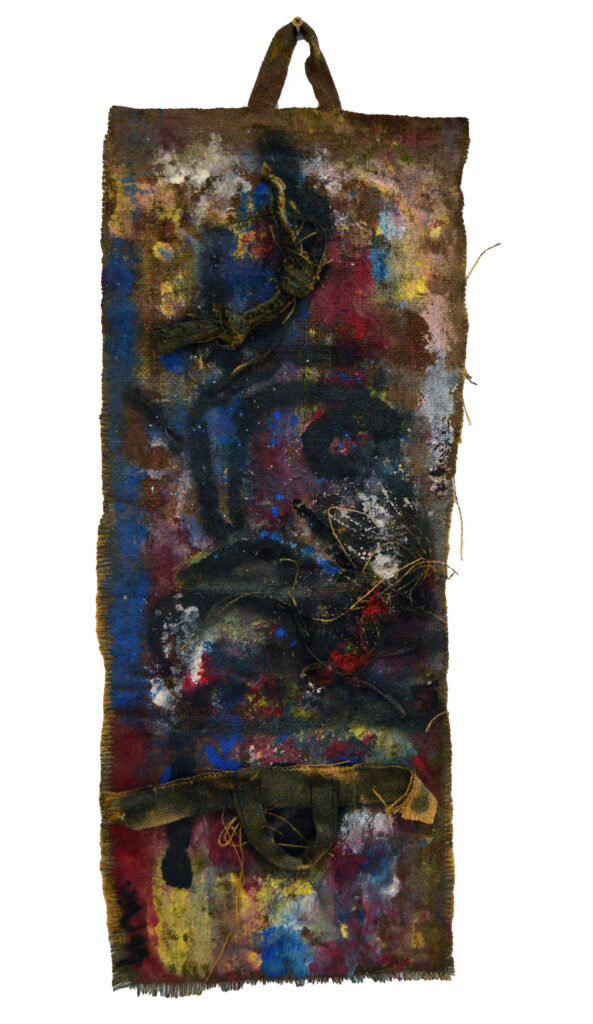
Dr. Noha Farran is the Founder & CEO of ‘Thinking Art’ Foundation’, Historian, Professor, Cultural Strategist, Researcher, Curator, Visual Artist & Chief Editor of Al Tashkeel magazine. Holding a Ph.D. with excellence in the 'Art & Science of Arts', an MFA in Fine Arts, and an MA in the philosophy of art, she has authored numerous published books and research papers documenting art in the Arab World.

